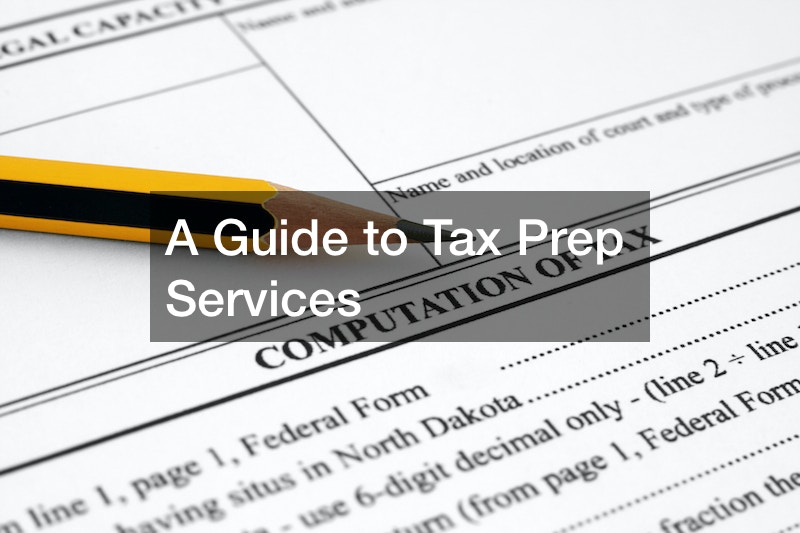
Navigating the complex world of law can be a daunting task for many individuals. Whether you are dealing with personal injury, estate planning, or facing a criminal charge, understanding the different facets of legal representation is crucial. Several types of lawyers and attorneys specialize in various fields of law, each offering unique skills and expertise tailored to specific legal needs. This article delves deep into understanding the roles and responsibilities of different kinds of lawyers and attorneys, providing guidance on how to choose the right one for your legal needs. From initial consultations to understanding legal fees and building a strong working relationship, this comprehensive guide covers all essential aspects to help you make informed decisions. Whether you’re in need of a federal criminal defense lawyer, social security disability lawyers, or simply seeking to navigate legal fees, this article aims to arm you with the knowledge needed to effectively engage with your legal representation.
Understanding Legal Representation: Who Does What?

Lawyers and attorneys are often used interchangeably, but they perform distinct functions in the legal realm. A lawyer is a professional trained in law who may provide legal guidance, draft documents, and offer various legal services. An attorney, on the other hand, not only has the same qualifications as a lawyer but also has the authority to represent clients in court proceedings. While all attorneys are lawyers, not all lawyers are attorneys. This distinction is crucial when determining the type of legal assistance you need.
The responsibilities of lawyers and attorneys can vary widely depending on their areas of specialization. For instance, personal injury lawyers, such as local injury attorneys and truck accident lawyers, focus on securing compensation for clients who have sustained injuries due to the negligence of others. Their primary role is to negotiate settlements and, if necessary, represent clients in court to secure their rightful compensation. On the other hand, federal criminal defense lawyers specialize in defending clients against federal charges, offering expertise in navigating the complexities of federal law.
Estate planning lawyers are another crucial category, assisting clients in managing their estates, drafting wills, and setting up trusts to ensure their assets are distributed according to their wishes. This field requires a deep understanding of tax laws and state regulations to provide comprehensive legal advice. Guardianship lawyers, on the other hand, help clients establish legal guardianship for minors or incapacitated adults, ensuring their care and protection under the law. By understanding these roles, clients can better assess which type of legal professional suits their specific needs.
Choosing the Right Lawyer for Your Needs
Selecting the right lawyer for your specific legal requirements is a critical decision that can significantly impact the outcome of your case. One of the first steps is identifying the type of lawyer you need. For example, an estate planning lawyer specializes in managing assets and ensuring they are distributed according to your wishes through wills, trusts, and other legal documents. They have the expertise to navigate complicated tax laws and state regulations, providing peace of mind that your estate will be handled appropriately.
When comparing lawyers and attorneys, it’s essential to consider their areas of specialization and experience. While some general practice lawyers may handle a variety of cases, specialized lawyers bring in-depth knowledge of specific fields. For instance, injury lawyers, such as local injury attorneys or truck accident lawyers, are well-versed in personal injury laws and have a track record of winning compensation for their clients. This specialized knowledge can significantly influence the success of your case.
Referrals and research also play a vital role in choosing the right lawyer. Seeking recommendations from friends, family, or other trusted sources can provide valuable insights. Additionally, reviewing online reviews and ratings, and checking credentials and disciplinary records, can help you make an informed decision. It’s crucial to choose a lawyer who not only has the expertise you require but also someone with whom you feel comfortable working, as a strong attorney-client relationship is key to effective representation.
The Initial Consultation: What to Expect
The initial consultation with lawyers and attorneys is a crucial step in your legal journey. This first meeting is an opportunity to discuss your case, ask questions, and determine if the lawyer is the right fit for you. Local injury attorneys, for example, will typically ask for detailed information about your accident, injuries, and any communications you have had with insurance companies. It’s a chance for them to evaluate the merits of your case and for you to assess their expertise and approach.
During the consultation, the lawyer will explain how they can assist you and outline their strategies for handling your case. Social security disability lawyers, for instance, will provide an overview of the process for filing a disability claim, the documentation needed, and the potential challenges you might face. They will assess your eligibility for benefits based on your medical conditions and work history, giving you a realistic expectation of your chances of success.
It’s also important to discuss legal fees during your initial consultation. Different lawyers and attorneys have varying fee structures, including hourly rates, flat fees, or contingency fees. Understanding these costs upfront helps prevent any surprises down the road. Additionally, don’t hesitate to ask about their communication policies, case timelines, and their approach to keeping you informed about developments in your case. A clear understanding of these aspects will set the foundation for a transparent and effective working relationship.
Preparing for Your First Meeting with an Attorney
Preparation is key when meeting with lawyers and attorneys for the first time. Gather all relevant documents and information concerning your case. If you’re meeting with social security disability lawyers, for example, bring medical records, employment history, and any correspondence with the Social Security Administration. This will help the lawyer assess your case more accurately and provide you with better advice.
It’s also beneficial to prepare a list of questions and concerns you want to address during the meeting. This ensures that you don’t forget to discuss any important aspects of your case. Whether you’re meeting with a local injury attorney, a guardianship lawyer, or any other type of lawyer, having a clear agenda can help make the most out of your consultation. Ask about their experience with similar cases, their success rates, and what you can expect moving forward.
Additionally, be prepared to discuss your goals and expectations. Be honest about what you hope to achieve and any concerns you have. Lawyers and attorneys need a clear understanding of your objectives to develop an effective strategy. For instance, whether you are seeking compensation for an injury, securing social security benefits, or planning your estate, conveying your goals will enable the attorney to tailor their approach to your specific needs.
Setting Clear Goals and Expectations
When working with lawyers and attorneys, setting clear goals and expectations is paramount for a successful outcome. Start by defining what you hope to achieve. For instance, if you are engaging a guardianship lawyer, clarify whether you are looking to establish guardianship for a minor, an elderly adult, or an incapacitated person. Clearly outlining your goals helps the lawyer understand your priorities and develop a strategy that aligns with your objectives.
It’s also important to have realistic expectations about the legal process. Lawyers and attorneys can offer guidance and representation, but they cannot guarantee specific outcomes. For example, while a bankruptcy lawyer can help you navigate the complexities of filing for bankruptcy, they cannot promise that all your debts will be discharged. Understanding the limitations and potential challenges helps manage your expectations and reduces the risk of disappointment.
Regular communication is crucial for ensuring your goals and expectations are being met. Schedule periodic check-ins with your lawyer to discuss the progress of your case. If any new developments arise or if your objectives change, communicate this to your attorney promptly. A guardianship lawyer, for example, may need to adjust their strategy if there are changes in the health or circumstances of the person for whom guardianship is being sought. Open and ongoing communication ensures that both you and your lawyer are on the same page throughout the legal process.
The Importance of Communication in Legal Matters

Effective communication between clients and their lawyers and attorneys is essential for successful legal representation. Open and frequent communication ensures that you are kept up-to-date on the progress of your case and that any concerns or questions are promptly addressed. For instance, if you are working with a bankruptcy lawyer, regular updates on your case status are crucial for understanding how your financial situation is being managed and what steps are being taken to achieve a resolution.
Clear communication helps build trust and confidence in your legal representation. When lawyers and attorneys take the time to explain complex legal jargon and processes in understandable terms, clients feel more informed and empowered. This is particularly important in cases involving technical legal issues, such as product liability cases. A product liability lawyer should ensure you understand the specific laws that apply to your case, the evidence required, and the potential outcomes.
Establishing preferred communication methods and frequency at the outset can prevent misunderstandings. Whether you prefer phone calls, emails, or in-person meetings, make this known to your lawyer. Regularly scheduled updates and prompt responses to your inquiries help maintain a smooth and collaborative working relationship. Effective communication is the cornerstone of a successful attorney-client relationship, enabling both parties to work together towards achieving the best possible outcome.
Navigating Legal Fees and Billing Practices
Understanding legal fees and billing practices is crucial when working with lawyers and attorneys. Different lawyers may have varying fee structures, including hourly rates, flat fees, contingency fees, and retainer agreements. For instance, a product liability lawyer may work on a contingency fee basis, meaning they only get paid if you win your case. This can be beneficial for clients who may not have the upfront funds to pay for legal services, but it’s important to understand the percentage that the lawyer will take from your settlement or award.
Transparent communication about fees and billing practices should be established from the beginning. Lawyers and attorneys should provide a clear explanation of their fees and any additional costs that might arise, such as court fees, expert witness fees, or administrative expenses. For example, a bankruptcy lawyer should outline all potential costs involved in filing for bankruptcy, including filing fees and any additional charges for managing your case.
Regular billing updates and invoices that detail the work performed and the associated costs help clients keep track of their legal expenses. If there are any discrepancies or unexpected charges, address them with your lawyer immediately. Understanding the billing process and maintaining open communication about fees ensures there are no surprises, allowing you to manage your finances effectively throughout your legal journey.
How to Provide Effective Documentation and Evidence

Providing effective documentation and evidence is vital for building a strong legal case. When working with lawyers and attorneys, organize all relevant documents in a clear and accessible manner. For instance, if you are working with a truck accident lawyer, gather police reports, medical records, witness statements, and any correspondence with insurance companies. This helps your lawyer assess the strength of your case and develop an effective strategy.
Detailed and accurate documentation can significantly impact the outcome of your case. In cases of product liability, for example, keeping a record of the defective product, receipts, warranties, and any communication with the manufacturer or seller is crucial. A product liability lawyer will use this evidence to demonstrate that the product was defective and caused harm, thereby strengthening your case for compensation.
Consulting with your lawyer on how to document and present evidence is also essential. They can provide guidance on what information is most relevant and how to collect it. Whether you’re dealing with an injury lawyer or a federal criminal defense lawyer, proper documentation supports your claims and contributes to a more persuasive argument in court. Regularly updating your lawyer with new evidence or documentation ensures that they have the most current information to represent you effectively.
Understanding Legal Terms and Processes
The legal field is filled with complex terminology and intricate processes that can be overwhelming for those not familiar with the law. Lawyers and attorneys should take the time to explain these terms and processes to their clients. For example, a federal criminal defense lawyer can help you understand the charges against you, the legal procedures you’ll face, and the potential outcomes of your case. This knowledge empowers you to make informed decisions about your defense strategy.
Understanding common legal terms, such as “plaintiff,” “defendant,” “litigation,” “settlement,” and “appeal,” is essential for navigating your legal journey. Lawyers and attorneys can explain these terms in the context of your case, ensuring you know who the involved parties are, what legal actions are being taken, and what each phase of the legal process entails. For instance, in personal injury cases, knowing the difference between a settlement and a court verdict helps you understand your options and potential outcomes.
Different areas of law have specific procedures and timelines. Social security disability lawyers, for example, will explain the process for filing a disability claim, the required medical documentation, and the timelines for hearings and appeals. Familiarizing yourself with these processes helps you prepare better and manage your expectations. A well-informed client is better equipped to work effectively with their attorney, contributing to a more successful legal outcome.
Building a Strong Working Relationship with Your Lawyer

A strong working relationship with your lawyer is key to effective legal representation. Trust and mutual respect form the foundation of this relationship. Injury lawyers, for instance, need to trust that their clients are providing accurate and honest information about their injuries and circumstances. Conversely, clients need to trust that their lawyer is dedicated to advocating for their best interests and is competent in handling their case.
Active participation in your legal case fosters a positive attorney-client relationship. Regular communication, attending scheduled meetings, and providing timely responses to your lawyer’s requests demonstrate your commitment to the case. Lawyers and attorneys appreciate clients who are engaged and proactive, as this collaboration often leads to a more successful outcome. For example, a guardianship lawyer will need your active involvement in gathering documentation and preparing for court proceedings to ensure the best possible result.
Respecting your lawyer’s expertise and understanding their role enhances the working relationship. While it is important to ask questions and seek clarifications, it’s equally important to trust their professional judgment and legal advice. For instance, trusting a federal criminal defense lawyer’s strategy based on their extensive experience in handling similar cases can make a significant difference in the outcome of your case. A collaborative and respectful partnership between client and attorney is essential to navigate the legal system effectively.
Conclusion
In conclusion, understanding the roles and responsibilities of different lawyers and attorneys is fundamental to making informed legal decisions. The distinctions between various types of legal professionals—such as estate planning lawyers, social security disability lawyers, and federal criminal defense lawyers—highlight the importance of selecting the right legal representation for your specific needs. Effective communication, clear goal setting, and a strong working relationship between clients and their lawyers are essential components of successful legal outcomes. By comprehending legal terms, processes, and the importance of thorough documentation, clients can navigate the complexities of the legal system more confidently. Furthermore, addressing and understanding legal fees and billing practices ensures transparency and financial preparedness throughout the legal journey.



